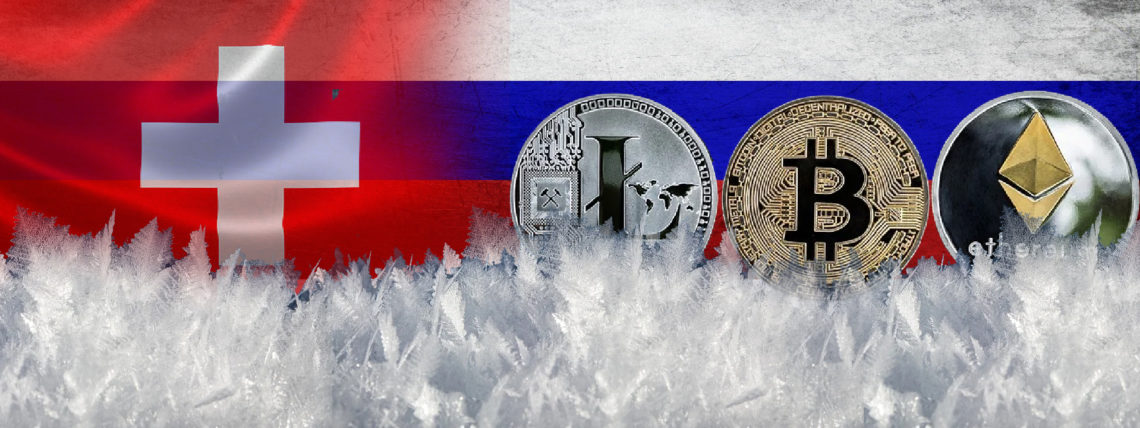- Financial Times reveals that the Swiss government plans to freeze Russian crypto assets and businesses held within the borders of Switzerland.
- The freeze comes on top of the sanctions already on Russia by the European Union.
- A senior official with the finance ministry explains that the freeze is needed to ensure the integrity of Switzerland’s blockchain industry.
The Swiss Federal government intends to freeze crypto assets whose owners are Russians and businesses held inside Switzerland’s borders, as per the reports from the Financial Times.
There are already sanctions on Russia post its attack on Ukraine; the freeze will be an added challenge for the country.
According to Financial Times reports, Guy Parmelin, Swiss Finance Minister, says the physical assets and bank accounts of 223 Russians, including close allies of President Vladimir Putin, were frozen by Switzerland in the last week. In addition to EU sanctions, the cryptocurrency prohibition would be an extra penalty.
It was important for Switzerland to freeze the crypto assets to ensure its blockchain industry’s integrity, says a senior official with the finance ministry as reported by the Financial Times.
According to a report by a Swiss venture capitalist firm, CV VC, Switzerland, and its neighboring principality Liechtenstein is home to around 1,128 blockchain companies.
The European Union’s announcement to put a crackdown on any efforts from Russia to evade economic sanctions using cryptocurrencies came on Wednesday. Bruno Le Maire, the Finance minister of France, shared that they are taking all the possible measures, especially in regards to cryptocurrencies, “which should not be used to circumvent the financial sanctions decided upon by the 27 EU countries.”
There is also demand that popular exchanges such as Binance and Coinbase should ban and freeze Russian access to cryptocurrency. This further highlights the fact that cryptocurrencies are borderless. It is important to understand that an exchange might freeze or restrict access. Still, unless its holders try to move or freeze it through restricted channels, crypto stored in a self-custodial wallet or cold storage would be far more difficult to seize.
The official further explained that it would be difficult to identify a user if they hold their crypto key themselves wherever they go. However, if they use any crypto services such as exchanges and funds, these service points can be targeted.
ALSO READ: $1 billion Bitcoin bet placed by El Salvador president

Andrew is a blockchain developer who developed his interest in cryptocurrencies while pursuing his post-graduation major in blockchain development. He is a keen observer of details and shares his passion for writing, along with coding. His backend knowledge about blockchain helps him give a unique perspective to his writing skills, and a reliable craft at explaining the concepts such as blockchain programming, languages and token minting. He also frequently shares technical details and performance indicators of ICOs and IDOs.


 Home
Home News
News









